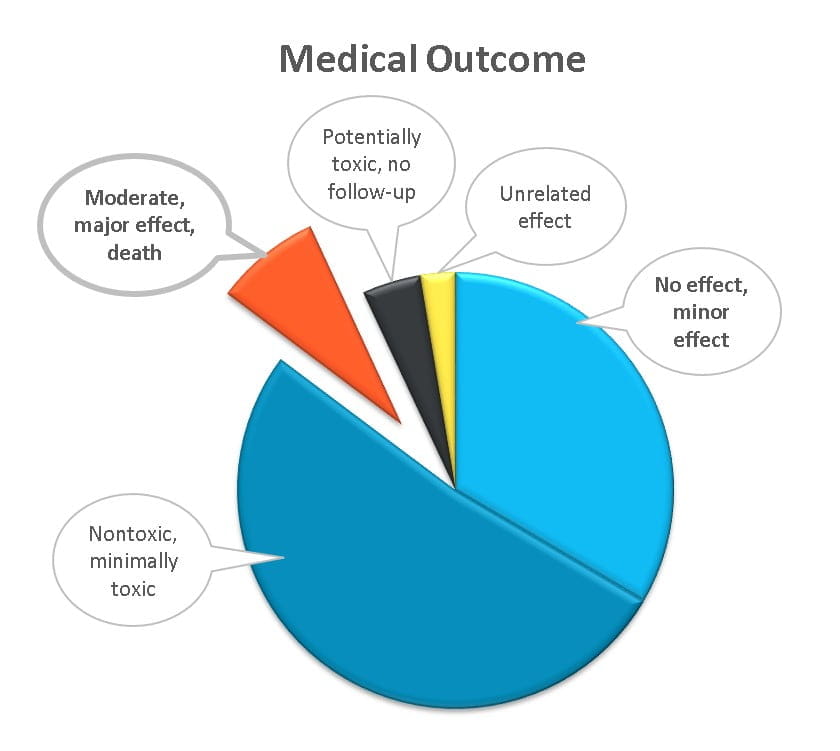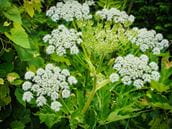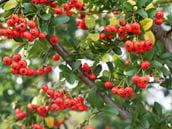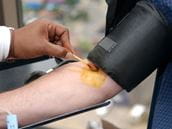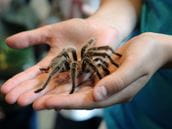
Types of Common and Dangerous Poisons
Common and dangerous poisons. If you suspect someone has been poisoned, call or use webPOISONCONTROL®, the online tool for those who prefer not to call.
Displaying 21 - 30 of 73 results for "topical"
Common and dangerous poisons. If you suspect someone has been poisoned, call or use webPOISONCONTROL®, the online tool for those who prefer not to call.
Chlorhexidine is an antibacterial agent that is commonly used in dental and surgical settings. Lower concentration products sold over the counter do not typically cause serious problems, but people can have adverse effects and allergic reactions even with normal use.
Giant hogweed is the most well-known species of the genus Heracleum, a group of plants whose sap contains a chemical that can be very harmful if it touches the skin. Although the concentration of the toxic component can vary from plant to plant, it is best to avoid contact with any species in this group of plants to prevent potential injury!
Ethyl chloride is a local anesthetic agent that relieves pain by cooling the skin surface. Ethyl chloride abuse, which occurs when individuals intentionally inhale its vapors, can result in sleepiness, abnormal heart rhythms, and death. Ethyl chloride is flammable and can cause frostbite if used incorrectly.
Boric acid has antibacterial and antifungal properties, and boric acid suppositories are used by some women to treat vaginal yeast infections. The suppositories are meant to be inserted directly into the vagina, and should not be swallowed. Consumption of large amounts of boric acid may result in gastrointestinal distress, kidney problems, or death.
Pyracantha is an evergreen shrub often used in landscaping. The shrub typically has plentiful orange-red berries and needle-like thorns. The berries have not been shown to be toxic to animals or humans, although swallowing large amounts might cause some mild stomach upset.
Povidone is found in both medical and household items and can cause mild symptoms with large ingestions. Povidone iodine is a common antiseptic used to disinfect the skin, eyes, and vagina. When used correctly, povidone iodine might cause mild side effects, but it can cause major problems when used incorrectly.
Itch mite bites can cause intense itching and skin redness that can last for weeks. Because the mites are very small, most people do not remember being bitten. Over-the-counter products, including topical steroids and oral antihistamines, can be used to treat the itching caused by these bites.
False eyelashes and lash extensions add an extra "pop" to your eyes. Temporary lashes are attached above the natural eyelashes with a temporary adhesive, while semi-permanent lash extensions are attached to the natural lashes with cyanoacrylate, the adhesive in Super Glue. If either kind of adhesive is used incorrectly, it can cause serious toxicity and injury.
Tarantulas are venomous, but the effects of the venom of tarantulas indigenous to North America are typically mild in humans and only cause pain at the bite site. Contact with tarantula hairs can cause redness, itching, and swelling. Avoid getting tarantula hairs in the eye. If you are bitten, wash the bite with soap and water, and then contact Poison Control, online or by phone.
Don't guess what you should do. Get accurate Poison Control answers online or by phone. Both are free and confidential.
or CALL 1-800-222-1222
Save the poison control number and the link to online help NOW! Text-to-save or download directly to save our vcard to your computer and smartphone contacts.
The Poison Post® is a free, quarterly
e-newsletter delivering poison prevention tips right to your inbox!
Learn the Poison Help jingle in English or Spanish. Use these jingles to teach the Poison Control number: 1-800-222-1222. Available for download.
